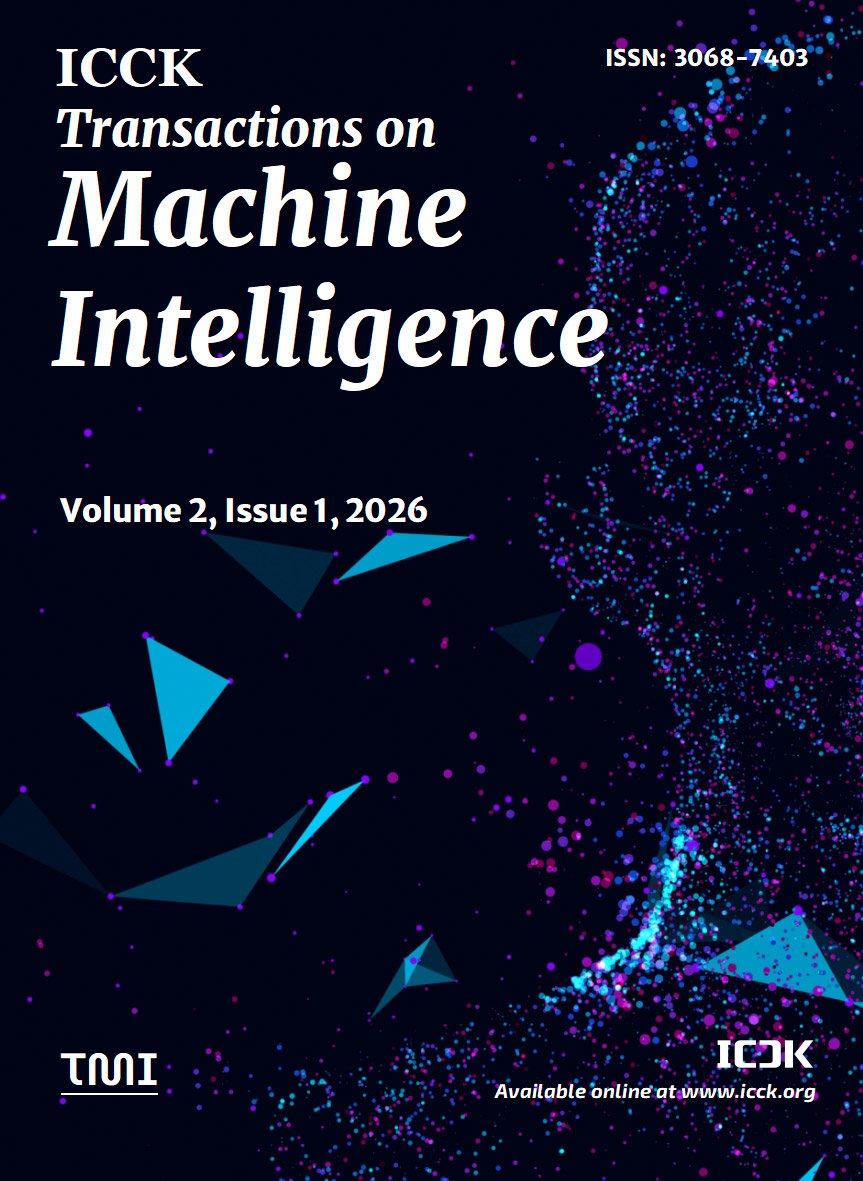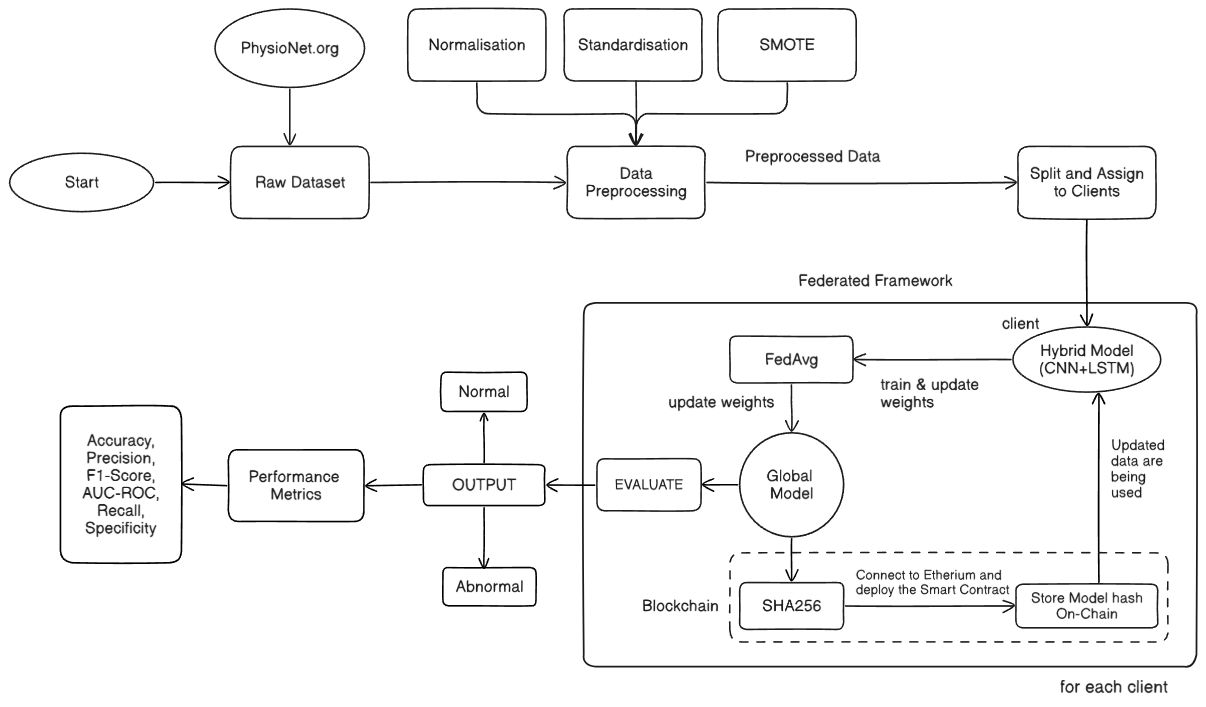Abstract
Early diagnosis of cardiac abnormalities depends on accurate classification of heart sounds, but centralized training methods run the danger of violating patient privacy. We thus propose a privacy-preserving and reliable heart sound abnormality detection system combining Blockchain Technology with Federated Learning (FL). Training is spread among seven clients, each simulating an independent data source, using a preprocessed dataset from the PhysioNet Challenge 2016 to enable distributed learning without sharing raw data. CNN-LSTM model using FedAvg achieved the best performance: 94\% accuracy, 0.90 precision, 0.96 recall, and an AUC of 0.98 among five deep learning architectures evaluated with FedAvg and FedProx strategies. Along with metadata including client ID and round number, SHA-256 hashes of local and global model weights were recorded on a local Ethereum blockchain following every communication round to guarantee model integrity. The hash of the final model is revalidated against the blockchain to confirm authenticity prior to deployment. It then guarantees safe, distributed, clinically valuable AI-based diagnostics by real-time classification of heart sounds as normal or abnormal.
Keywords
federated learning
blockchain-based model validation
heart sound classification
privacy-preserving artificial intelligence
CNN-LSTM architecture
SHA-256 model integrity
decentralized healthcare diagnostics
Data Availability Statement
Data will be made available on request.
Funding
This work was supported without any funding.
Conflicts of Interest
The authors declare no conflicts of interest.
Ethical Approval and Consent to Participate
Not applicable.
Cite This Article
APA Style
Agarwal, S., Kandpal, M., Gupta, V. K., Aggarwal, S., & Jain, P. (2025). Secure and Decentralized Heart Sound Analysis using Federated Learning and Blockchain Technology. ICCK Transactions on Machine Intelligence, 2(1), 1–11. https://doi.org/10.62762/TMI.2025.567350
Publisher's Note
ICCK stays neutral with regard to jurisdictional claims in published maps and institutional affiliations.
Rights and Permissions
Institute of Central Computation and Knowledge (ICCK) or its licensor (e.g. a society or other partner) holds exclusive rights to this article under a publishing agreement with the author(s) or other rightsholder(s); author self-archiving of the accepted manuscript version of this article is solely governed by the terms of such publishing agreement and applicable law.


 Submit Manuscript
Edit a Special Issue
Submit Manuscript
Edit a Special Issue

